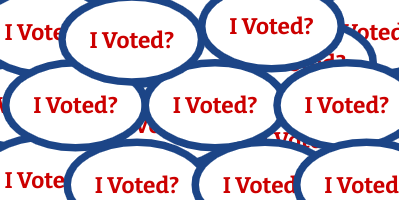The Electoral College Should Be Abolished

Do our own votes matter with the existence of Electoral College?
In every U.S. presidential election, the Electoral College has consistently played a predominant role in determining the winner. Now, some would expect the national popular vote to be the more crucial electoral system. After all, the president and vice-president are supposed to represent every American. Wouldn’t it be better to ensure that through a vote directly showcasing the collective wills of the American people? Well, apparently, the opposite has been the reality since the nation’s inception.
Each state in the U.S. has a certain number of electoral votes based on the number of its senators and congressional districts. For example, Pennsylvania has two senators, but it also has 18 congressional districts. Therefore, it would provide 20 electoral votes to the candidate who won Pennsylvania’s popular vote, even if it’s by a slight margin. To reiterate, that means that if one candidate won 51% of Pennsylvania’s votes and another won 49%, the former would win all 20 electoral votes. This alone is a cause for concern, as such a slim difference between vote percentages could significantly change the tide of an election. Granted, this would apply to a national popular vote, but it’s amplified across 50 states. So, the Electoral College, with the way it is, essentially acts as another layer of national voting.
We’ve recently seen this in effect in the 2020 presidential election, with both presidential candidates racing for the 270 electoral votes out of the total 538 to clinch their victory. They’d campaign in swing states like Pennsylvania, where the popular vote would skew from one political party to another, netting them a lot of electoral votes. This also would entail Americans in consistently “red” or “blue” states feeling less compelled to vote, as it wouldn’t make much of a difference in their state’s popular vote. This wouldn’t be the case with a national popular vote.
With a system like the Electoral College, the popular vote isn’t really decisive at all in the election process. A presidential candidate could lose the popular vote, yet still win the whole election because of the Electoral College. President Trump won this way in 2016, as Hillary Clinton won the popular vote but lost the electoral vote. This essentially means that not every American can directly impact the result of the election, especially if they don’t live in a swing state.
Is this fair at all to the American people? Does this represent the collective will of the national population? I say that it isn’t and it doesn’t. As a democratic nation, the people have the right to political participation and voicing their collective will. They should have the ability to make their vote directly count, which they can’t do with the Electoral College deciding the vote on a state-by-state basis.
“Over time, the EC (Electoral College) has lost its original intent,” said Andy Merritt, State High’s AP Government and Comparative Government teacher. “It was meant for states to be a check on the executive and to pick the best candidate without regard to party. In fact, when the constitution was written, it was designed without parties in mind.”
This addresses how the Electoral College was created to prevent a “tyranny of the majority,” a concept which states that the majority rule is a flawed principle of governance. It would allow the majority group to pursue any agenda that the minority group wouldn’t want them to. In this case, a political party that wins by a majority rule in the national popular vote would have more control of the government than another political party of a different ideology. The proposed solution to this was the Electoral College, with electors supposedly more capable of determining who’s a better fit for office, it would give both parties a chance to pursue their own political platforms.
Again, is this fair to the American people? After all, the majority is the majority for a reason. If more Americans favor one ideology over another based on what it stands for and what it has done for them, they should be able to vote for the candidate that best represents that ideology. If it turns out that their platform doesn’t work, the American people would receive the full consequences of their decisions and then be compelled to vote for someone more capable. Of course, it’s up to them to stay informed of what happens in their nation, which is easier with resources such as the internet. This would all allow Americans to be responsible with their collective vote and participate in a true democracy.
“It depends on whom you ask and when,” said Mr. Merritt when asked about whether or not the Electoral College has served its purpose well. “President Trump initially said the EC should be eliminated. Then, he won a minority of the popular vote but a majority of the EC and then he said it was great. Two times in the past twenty years, the EC has allowed the minority popular vote candidate to win the presidency. I believe that has occurred five times in 46 election cycles, or about 9% of the time.”
The majority of candidates that won with just the Electoral College were Republicans. Even though this didn’t happen in the 2020 election, the Electoral College is still a pivotal institution that draws much controversy, even among State High students.
“I think the Electoral College does what it’s meant to do,” said senior Ian Thompson. “But I don’t like what it’s meant to do. It’s also born out of a rather inhumane era in American history. It wouldn’t have been as disliked now if it wasn’t adjusted because of the Three-fifths Compromise.”
The Three-fifths Compromise was an agreement in early American history that essentially made three-fifths of a state’s slave population count in their total population. This greatly benefited southern states — which had more slaves than the northern states — because they could have more representatives and electoral votes. Slaves couldn’t vote at all, meaning southern states could still use their numbers to their advantage and not worry about losing in a national popular vote.
Thompson also expressed concerns over the potential partisan conflict that removing the Electoral College would bring. Conservatives have consistently relied upon it for victory, and without it, they’d lose through the popular vote. He brought up the American Civil War, in which the Confederacy (formed from southern states) seceded from the U.S., as they believed the whole nation didn’t provide what they wanted. Since then, southern conservative senators (Republicans) have acted as the major roadblock in preventing any legislative removal of the Electoral College. There likely won’t be as dramatic of a reaction from them such as secession in response to removing the Electoral College, but it would seriously divide the nation politically. Though, it would be worth it if it meant the people having more of a say in what happens in their country.
“A popular vote would encourage a lot more freedom with your vote. Ranked voting is my favorite solution so far… I don’t understand why people defend [the Electoral College], other than clinging on to the Republican Party’s life,” said Thompson.
However, there are many Americans who feel as though the Electoral College is necessary for this nation to function. They believe that it is integral to maintaining stability.
“While I understand there are flaws in the Electoral College, ” said senior Dylan Bellissimo-Meade, ”I do believe it does more good than bad. It serves to prevent a direct democracy and the tyranny of the majority which follows.”
While Bellissimo-Meade felt as though the tyranny of the majority is a strong reason to keep the Electoral College, it still stands that the majority is the majority for a reason. National elections also seek out to do the same thing that the Electoral College was made to do; they represent all of the people, but more effectively. The direct nature of a national popular vote would be beneficial, especially if a candidate only wins in the Electoral College.
“As with anything, there is definitely room for improvement,” said Bellissimo-Meade. “I believe an updated voting system is long overdue, however, I would strongly oppose any steps taken that would result in a shift towards any form of direct democracy.”
There are other problems with the Electoral College that merit its removal, one being what’s known as “faithless electors.” These are individuals who would not vote for the candidate that they pledged to vote for based on their state’s popular vote, but instead vote for someone else. The consequences for this vary state by state, but it’s still concerning. It would completely disregard who the state wanted to vote for, denying the people’s ability to choose their leader.
The Electoral College is flawed and, at the very least, needs serious reform. There have already been processes in place towards removing it, yet none have been successful so far. It is up to every American to make their voice heard and make a difference in the election process. Only then can we have leaders who can effectively represent us.
Your donation will support the student journalists of State College Area High School. Your contribution will allow us to purchase equipment and cover our annual website hosting costs.

(Pronouns: he/him)Raj Anoop is a senior at State High who’s taking Journalism 1 to play a part in the school news. He likes playing video games, taking...







![The Varsity Boys Volleyball team poses for a photograph after sweeping Altoona 3-0 in the District 6 Championship game. “[Winning the championship] means a lot and shows the work we have put in all year paying off. Still, we aren't celebrating too much as we still have games ahead of us,” junior Derrick Campbell said.](https://lionsdigest1.com/wp-content/uploads/2025/05/EFP_8864-600x399.jpg)


